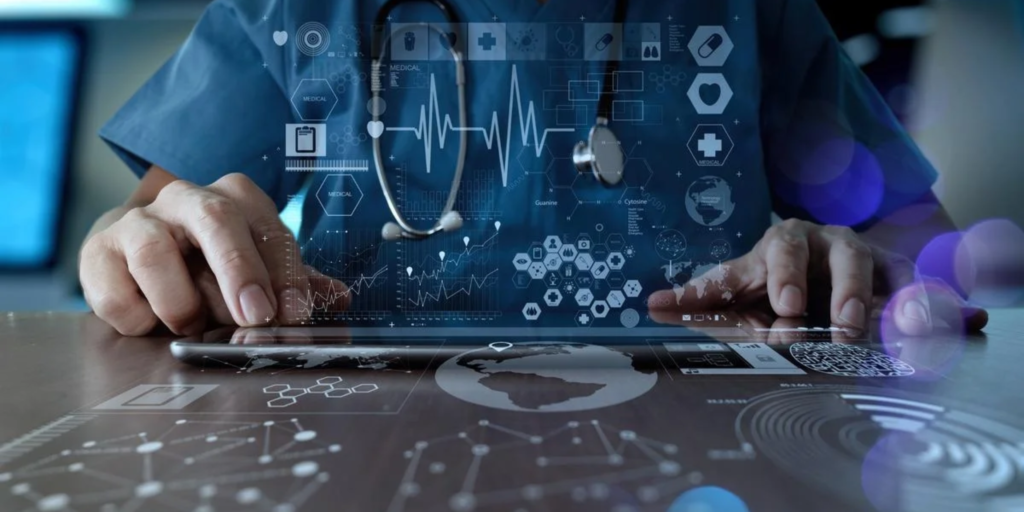
The Symbiosis of Medicine and Technology: Transforming Healthcare in the Digital Era
Introduction:
In today’s rapidly evolving landscape, the fusion of medical expertise and cutting-edge technology is revolutionizing the healthcare industry. This blog explores the seamless integration of these two domains, showcasing the advancements that are reshaping patient care, diagnosis, and treatment. Join us on a journey through the intersection of medicine and technology, where innovation is the heartbeat of a healthier future.
The Digital Diagnostic Revolution:
Medical technology has propelled diagnostics to new heights, enabling precise and swift identification of ailments. From advanced imaging techniques like MRI and CT scans to the integration of artificial intelligence (AI) in analyzing medical data, these innovations empower healthcare professionals with unparalleled insights. In turn, this accelerates the diagnostic process, allowing for more informed and timely decision-making.
Telemedicine:
The advent of telemedicine has transformed the way healthcare is delivered, breaking down geographical barriers and providing access to medical expertise from the comfort of one’s home. This digital approach not only enhances patient convenience but also ensures that medical resources are distributed more efficiently, addressing healthcare disparities.
Wearable Health Tech:
The rise of wearable devices, from fitness trackers to smartwatches with health monitoring features, has ushered in an era of personalized healthcare. Individuals can now actively participate in managing their well-being, tracking vital signs, and receiving real-time insights into their health. This shift towards proactive health management is a testament to the empowering capabilities of medical technology.
Robotics in Surgery:
In the realm of surgical procedures, robotics has emerged as a game-changer. Robotic-assisted surgeries offer unparalleled precision, minimizing invasiveness and expediting recovery times. Surgeons can now perform intricate procedures with enhanced dexterity, guided by robotic systems that augment their skills, ultimately leading to better patient outcomes.
Data Security and Patient Privacy:
As technology becomes more intertwined with healthcare, ensuring the security and privacy of patient data is paramount. Robust cybersecurity measures are essential to safeguard sensitive medical information, fostering trust between patients, healthcare providers, and the technological infrastructure supporting modern healthcare delivery.
AI and Predictive Analytics:
Artificial intelligence and predictive analytics are at the forefront of shaping the future of medicine. From predicting disease outbreaks to identifying personalized treatment plans based on genetic data, these technologies hold the promise of a more tailored and effective approach to healthcare. Embracing these innovations will be key to addressing health challenges on a global scale.
Conclusion:
In conclusion, the convergence of medical expertise and technology is ushering in a new era of healthcare. From digital diagnostics and telemedicine to wearable health tech, robotics, and AI-driven analytics, each innovation plays a crucial role in enhancing patient care. As we navigate the digital transformation of healthcare, it is essential to prioritize data security and patient privacy, ensuring that these advancements contribute to a healthier and more connected world. Embrace the future of healthcare—where innovation and compassion converge for the well-being of all.

